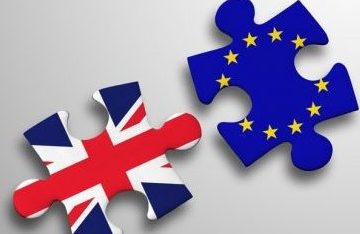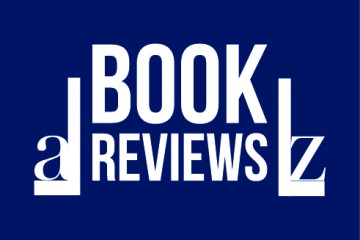
Brexit: after the posturing, the EEA?
When Britain will put forward its Brexit proposing in the spring of 2017, it should consider membership in a reformed European Economic Area, argues Michael Starks. Economic stability within a reformed EEA, which recognised the legitimate concerns of non-EU countries over open-ended migration from the EU, could provide either an interim or a permanent status for the UK in 2019. In 2017 the UK will put its opening Brexit proposal to the other 27 members of the European Union. On present evidence, the British government will ask for an agreement tailor-made for Britain, not something off-the-shelf. Theresa May, the prime minister, will look to forge a deal combining control on immigration numbers from EU countries whilst also maximising, sector by …

Romania may have the most to lose from Moldova’s presidential election
Moldova is due to hold presidential elections on 30 October. Alexandru Damian examines what the implications of the election may be for Romania, which has previously expressed support for the current Moldovan government. He suggests that with the government’s preferred candidate facing a challenge to make the second round of the contest, supporting Maia Sandu from the Action and Solidarity party may represent the best option for promoting reform in the country. Shaken by political and economic instability, and divided between pro-Russian and pro-European positions, Moldova is presently awaiting critical presidential elections on 30 October which will help shape the country’s future trajectory. But against this backdrop, Romania’s engagement with the country over the last year could well be described as a …

The Impact of Brexit on Europe-China Relations
The decision of the United Kingdom (UK) to leave the European Union (EU) in the referendum of June 23rd 2016 has reverberations well beyond Europe as a political and economic shock of substantial proportions. The future relationship of China, both with the remaining member states of the EU and with the UK, is one example of how a domestic political decision is having global ramifications as change ripples through the international system. Overarching any analysis about the impact of Brexit must be a sense of caution about what still remains unknown over the shape of future policy outcomes. Two cross-cutting factors are particularly important: the first is a legal and political one – what will the resulting settlement between the …

Independent. Neutral. Impartial. Political? MSF and the EU Refugee Crisis
On 17 June 2016, Médecins Sans Frontières (MSF) International tweeted: ‘We cannot accept funding from the EU or the Member States while at the same time treating the victims of their polices! It’s that simple.’ The decision is a vivid example of MSF’s political engagement, this time in reaction to EU policies aiming to deter immigration. However, MSF’s actions sit uneasily with the organisation’s politically neutral and impartial public image. The political aspects of its work are not well-captured by the principles of independence, neutrality and impartiality that MSF celebrates, an issue that may hinder members of the public from being fully informed about which humanitarian charities best align with their beliefs. Two notions help to illustrate the political nature …

The case for uk parliamentary oversight of negotiation of the brexit agreements
On 6 September 2016 Professor Derrick Wyatt QC presented evidence to the House of Lords EU Select Committee on Parliamentary Scrutiny of the Brexit negotiations. In this article, Professor Wyatt summarises his contribution. A video of the oral evidence session is included below the article. When the uk triggers article 50, formal negotiations on a withdrawal agreement and a future trade agreement will begin When I last wrote for this blog about Brexit and the Article 50 process, shortly after giving evidence to the House of Lords EU Select Committee, I was writing about something that might happen. Now, more than two months after the referendum decision to leave the EU, I am writing about something that will happen. Once Article 50 …

The EU Negotiation: Going for Win-win-win
The optimum way for the United Kingdom to exit the European Union is by leading a reform of the European Economic Area (EEA). Could this deliver what the Leave voters want? If it could, why would the other 27 EU members ever agree to it? I argue that it could and they may. This outcome is by no means certain and, as in any negotiation, we need a second-best alternative in reserve, but we can only achieve the optimum answer by setting out now to get it. Win-win-win Prime Minister Theresa May has been very clear about adhering to 52% of the electorate that voted for Brexit: she will lead the UK out of the EU. She has also vowed …

Brexitania: Post-truth politics, the fallout, and the way forward
The UK’s Brexit referendum outcome has left Europe, and the world, in disbelief. After 40 years, Britain’s historic decision to turn its back on the European Union has divided the country—a division that cuts not only across families and friends, but also between the “establishment” and the electorate. It is perhaps this latter divide that is most pronounced. But will this division last? Brexit presents a unique opportunity to expose and debate some of our most pressing problems, and to restore the bonds of trust between voters and the political elite. Britain divided by elite maneuverings Britain leaving the EU does present some important challenges—both economic and social— that have splintered the British political, economic, cultural and ideological landscape. It …

International organisations on the loose? Sovereignty and international military operations
Dr Hylke Dijkstra has recently published a new book entitled International Organizations and Military Affairs (Routledge, 2016). This book represents the first comparative study of the politics behind the scenes at the United Nations, NATO and the European Union concerning the use of military force. It is also the result of a research project carried out at the DPIR in Oxford. DPhil candidate Dana Landau interviews him on the most pertinent questions that arise from his work.









